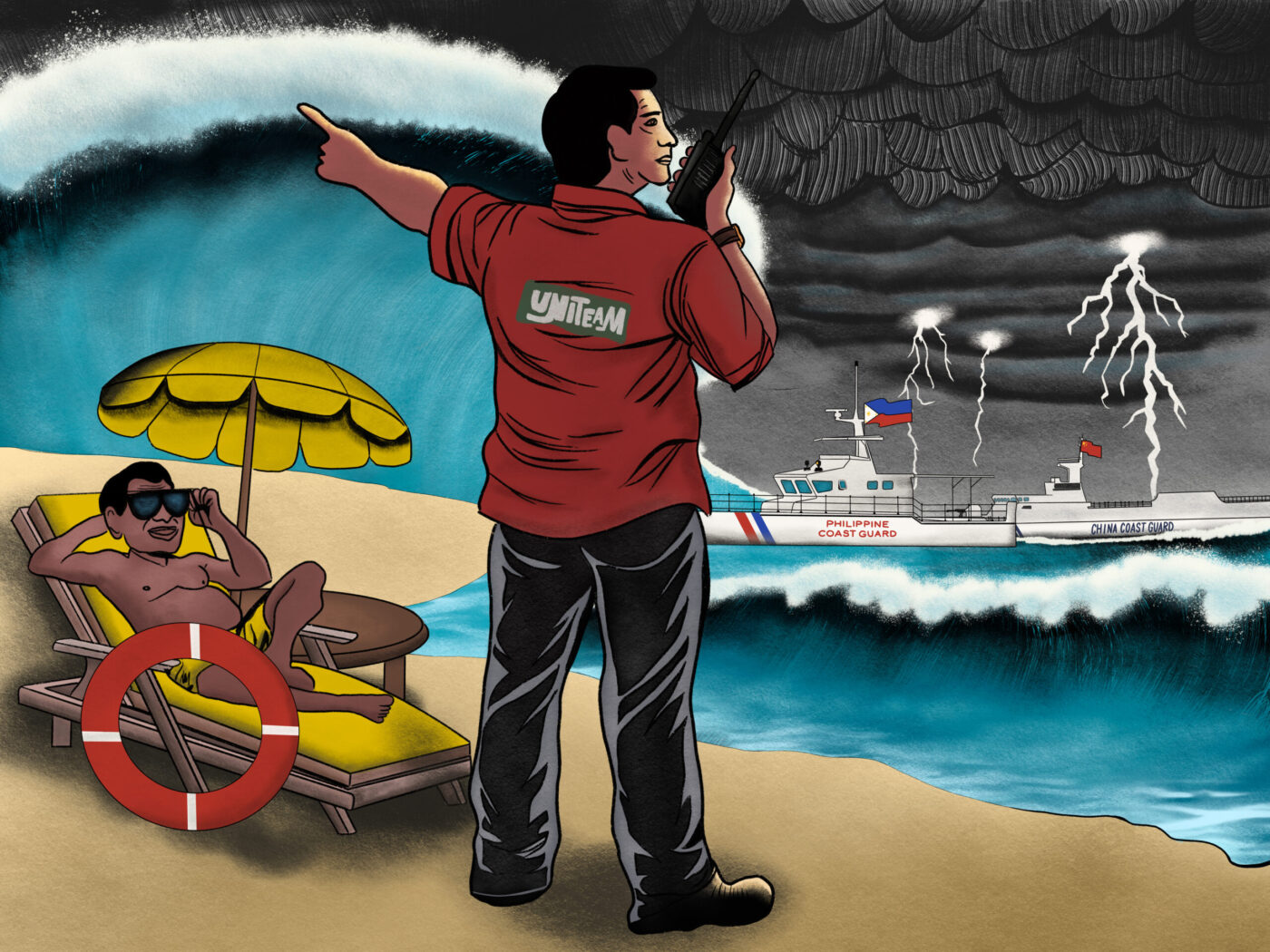THE WEST Philippine Sea (WPS) dispute between the Philippines and China has persisted for many years, evolving into a complex struggle that manifests across multiple fronts.
Both nations have utilized various strategies to assert their claims in the region, with the Philippines primarily relying on diplomatic protests and international legal arbitration ruling in favor of the country’s case for territorial delineation.
Amid rising regional tensions, the Philippines has recently taken a more assertive stance in the West Philippine Sea—hinting at a potential turning point for Southeast Asian cohesion and the future of Indo-Pacific power plays.
Strategy in security
Under President Ferdinand Marcos Jr., the Philippines’ stance in the WPS has become more proactive, marked by a strategic approach to safeguarding its maritime claims.
In his first State of the Nation Address in July 2022, Marcos Jr. asserted that the country would not yield “even one square inch” of its territory, emphasizing a strong commitment to national sovereignty amid China’s growing influence.
Central to Marcos Jr.’s strategy is the strengthening of the country’s defense capabilities through external partnerships. The Marcos administration has bolstered its maritime security strategy through external partnerships. These measures include reviving and expanding United States (US) rotational bases under the Enhanced Defense Cooperation Agreement (EDCA), signing a Reciprocal Access Agreement (RAA) with Japan, and engaging in trilateral cooperation with the US and Japan.
In addition to strengthening partnerships, the Marcos administration has also invested in modernizing its own defense capabilities by approving the ‘Re-Horizon 3’ military modernization program and proposing a 6% increase for the Philippine Coast Guard in conducting patrols and escorting resupply missions in the WPS.
In advancing its policy initiatives, the passage of the Maritime Zones Act provides a strong legal foundation for the Philippines to secure its territorial waters and resources. This legislation empowers national agencies to safeguard the resources within the country’s exclusive economic zone, ensuring that these benefits are maximized for the Filipino people.
Diplomacy and defiance
In contrast to the Philippines’ assertive stance, the Association of Southeast Asian Nations (ASEAN) has long been known for its principle of non-interference and cautious diplomacy when navigating complex regional disputes.
As tensions rise in the West Philippine Sea, however, the situation not only underscores the Philippines’ evolving foreign policy but also presents a challenge to ASEAN’s ability to maintain cohesion, especially with nations that prefer diplomatic caution over confrontation.
This more assertive approach by the Marcos administration comes at a time of rising volatility in the Indo-Pacific region, with China intensifying its territorial claims.
Political Science Associate Professor Alma Salvador, PhD notes that while the Philippines has strengthened strategic partnerships bilaterally with ASEAN members, it has also marked a shift in regional dynamics by pursuing partnerships outside ASEAN.
Traditionally, ASEAN has emphasized consensus-building and dialogue, but the Philippines’ decision to take a firmer stand signals a departure from this established norm.
Such a shift contrasts with ASEAN’s overall hesitation to provoke Beijing, with many of its members heavily relying on China for trade and investment. According to Salvador, the national interests of ASEAN member states vary significantly, highlighting their economic ties to China make it unlikely for them to align with the Philippines’ objectives.
Tides of trust
As the Philippines intensifies its assertive stance in the West Philippine Sea, its foreign policy marks a significant shift toward forming bilateral and minilateral alliances outside of the traditional multilateral framework.
This pivot may seem like a departure from ASEAN’s core value of consensus-building; however, experts argue it is a pragmatic response to safeguard national security.
Partnerships with nations such as Japan, Australia, and Vietnam underscore the Philippines’ acknowledgment of ASEAN’s limitations, particularly regarding geopolitical issues.
Despite ASEAN’s goals of integration and community-building, it remains unable to offer substantial support to member-states facing threats like China’s aggressive actions in the South China Sea. Salvador asserts that the Philippines cannot rely on other ASEAN member states for support, even symbolically, in standing up against China’s aggression.
The increasing reliance on bilateral agreements reveals a tension within ASEAN, where other member states face similar security threats yet prefer traditional diplomatic approaches.
Internal divisions also hinder the organization, driven by varying economic and political interests among its members. For instance, countries such as Cambodia and Laos, which are heavily dependent on China economically, are unlikely to support more assertive stances.
As the Philippines navigates this complex landscape, it shifts from former president Rodrigo Duterte’s policy of appeasement to a balanced approach under Marcos, strengthening ties with the US while maintaining economic relations with China.
This balance shows that economic engagement with China does not require sacrificing security partnerships. “The Philippines under [Marcos] continues to recognize the economic importance of China but is now realizing that it must diversify its supply chain needs,” Salvador explains.
While ASEAN centrality is often referenced, the increasing divergence among its members underscores a fundamental struggle for unity. The Philippines’ strategy highlights the importance of flexibility in foreign relations, reminding nations that rigid alliances can be a vulnerability in a rapidly changing world.
Thus, embracing strategic partnerships that foster economic growth and security is essential for navigating competing interests with clarity and purpose.




